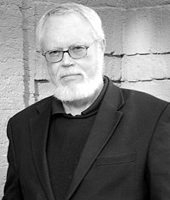Founder & President, the Institute for Governance & Sustainable Development
Durwood Zaelke is founder and President of the Institute for Governance & Sustainable Development (IGSD) in Washington, DC and Geneva; Director of the Secretariat for the International Network for Environmental Compliance & Enforcement (INECE) in Washington, DC and Geneva; and the co-Director and co-founder of the Program on Governance for Sustainable Development at the Bren School of Environmental Science & Management, University of California, Santa Barbara.
He is the author of the leading law school textbook on International Environmental Law & Policy, as well as a paper with Nobel Laureate, Dr. Mario Molina, as part a Special Feature on climate tipping points, Reducing abrupt climate change risk using the Montreal Protocol and other regulatory actions to complement cuts in CO2 emissions, Proceedings of the National Academy of Sciences (US) (2009). He is a graduate of Duke Law School (1972), where he was an Editor of the Duke Law Journal, and UCLA (1969), and a member of the bar in California, Washington, DC, and Alaska. Mr. Zaelke received both an Ozone Protection Award and a Climate Protection Award in 2008 for his contribution to the successful effort to maximize the climate benefits of the Montreal Protocol. He was a leading architect of the effort to strengthen climate protection under the Montreal Protocol, including through the 2007 decision to accelerate the phase-out of HCFCs, and the October 2016 amendment to phase-down HFCs, the fastest climate pollutants, know as the Kigali Amendment, which will avoid up to 0.5C of future warming, and perhaps twice that if the energy efficiency of air conditioners and other products and equipment is improved during their switch to climate friendly refrigerants.
Mr. Zaelke currently directs IGSD’s efforts on fast-action climate mitigation strategies including: reducing short-lived climate forcers (black carbon, ground-level ozone, and methane); expanding biosequestration through the use of biochar; increasing urban albedo; and further strengthening the Montreal Protocol to protect the climate by phasing out production and consumption of HFCs with high global warming potential.



